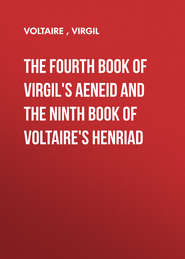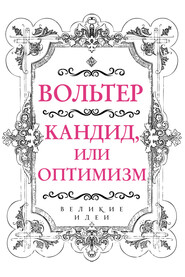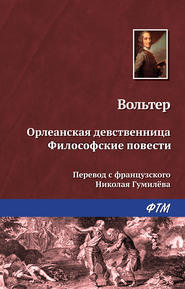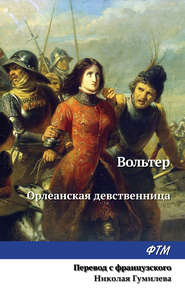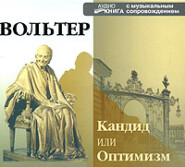По всем вопросам обращайтесь на: info@litportal.ru
(©) 2003-2024.
✖
A Philosophical Dictionary, Volume 02
Настройки чтения
Размер шрифта
Высота строк
Поля
WITH A SHORT REVIEW OF THE KORAN
This article may serve to show how much the most learned men may be deceived, and to develop some useful truths. In the "Dictionnaire Encyclopédique" there is the following passage concerning Arot and Marot:
"These are the names of two angels, who, the impostor Mahomet said, had been sent from God to teach man, and to order him to abstain from murder, false judgments, and excesses of every kind. This false prophet adds that a very beautiful woman, having invited these two angels to her table, made them drink wine, with which being heated, they solicited her as lovers; that she feigned to yield to their passion, provided they would first teach her the words by pronouncing which they said it was easy to ascend to heaven; that having obtained from them what she asked, she would not keep her promise; and that she was then taken up into heaven, where, having related to God what had passed, she was changed into the morning star called Lucifer or Aurora, and the angels were severely punished. Hence it was, according to Mahomet, that God took occasion to forbid wine to men."
It would be in vain to seek in the Koran for a single word of this absurd story and pretended reason for Mahomet's forbidding his followers the use of wine. He forbids it only in the second and fifth chapters.
"They will question thee about wine and strong liquors: thou shalt answer, that it is a great sin. The just, who believe and do good works, must not be reproached with having drunk, and played at games of chance, before games of chance were forbidden."
It is averred by all the Mahometans that their prophet forbade wine and liquors solely to preserve their health and prevent quarrels, in the burning climate of Arabia. The use of any fermented liquor soon affects the head, and may destroy both health and reason.
The fable of Arot and Marot descending from heaven, and wanting to lie with an Arab woman, after drinking wine with her, is not in any Mahometan author. It is to be found only among the impostures which various Christian writers, more indiscreet than enlightened, have printed against the Mussulman religion, through a zeal which is not according to knowledge. The names of Arot and Marot are in no part of the Koran. It is one Sylburgius who says, in an old book which nobody reads, that he anathematizes the angels Arot, Marot, Safah, and Merwah.
Observe, kind reader, that Safah and Merwah are two little hills near Mecca; so that our learned Sylburgius has taken two hills for two angels. Thus it was with every writer on Mahometanism among us, almost without exception, until the intelligent Reland gave us clear ideas of the Mussulman belief, and the learned Sale, after living twenty-four years in and about Arabia, at length enlightened us by his faithful translation of the Koran, and his most instructive preface.
Gagnier himself, notwithstanding his Arabic professorship at Oxford, has been pleased to put forth a few falsehoods concerning Mahomet, as if we had need of lies to maintain the truth of our religion against a false prophet. He gives us at full length Mahomet's journey through the seven heavens on the mare Alborac, and even ventures to cite the fifty-third sura or chapter; but neither in this fifty-third sura, nor in any other, is there so much as an allusion to this pretended journey through the heavens.
This strange story is related by Abulfeda, seven hundred years after Mahomet. It is taken, he says, from ancient manuscripts which were current in Mahomet's time. But it is evident that they were not Mahomet's; for, after his death, Abubeker gathered together all the leaves of the Koran, in the presence of all the chiefs of tribes, and nothing was inserted in the collection that did not appear to be authentic.
Besides, the chapter concerning the journey to heaven, not only is not in the Koran, but is in a very different style, and is at least four times as long as any of the received chapters. Compare all the other chapters of the Koran with this, and you will find a prodigious difference. It begins thus:
"One night, I fell asleep between the two hills of Safah and Merwah. That night was very dark, but so still that the dogs were not heard to bark, nor the cocks to crow. All at once, the angel Gabriel appeared before me in the form in which the Most High God created him. His skin was white as snow. His fair hair, admirably disposed, fell in ringlets over his shoulders; his forehead was clear, majestic, and serene, his teeth beautiful and shining, and his legs of a saffron hue; his garments were glittering with pearls, and with thread of pure gold. On his forehead was a plate of gold, on which were written two lines, brilliant and dazzling with light; in the first were these words, 'There is no God but God'; and in the second these, 'Mahomet is God's Apostle.' On beholding this, I remained the most astonished and confused of men. I observed about him seventy thousand little boxes or bags of musk and saffron. He had five hundred pairs of wings; and the distance from one wing to another was five hundred years' journey.
"Thus did Gabriel appear before me. He touched me, and said, 'Arise, thou sleeper!' I was seized with fear and trembling, and starting up, said to him, 'Who art thou?' He answered, 'God have mercy upon thee! I am thy brother Gabriel.' 'O my dearly beloved Gabriel,' said I, 'I ask thy pardon; is it a revelation of something new, or is it some afflicting threat that thou bringest me?' 'It is something new,' returned he; 'rise, my dearly beloved, and tie thy mantle over thy shoulders; thou wilt have need of it, for thou must this night pay a visit to thy Lord.' So saying, Gabriel, taking my hand, raised me from the ground, and having mounted me on the mare Alborac, led her himself by the bridle."
In fine, it is averred by the Mussulmans that this chapter, which has no authenticity, was imagined by Abu-Horaïrah, who is said to have been contemporary with the prophet. What should we say of a Turk who should come and insult our religion by telling us that we reckon among our sacred books the letters of St. Paul to Seneca, and Seneca's letters to St. Paul; the acts of Pilate; the life of Pilate's wife; the letters of the pretended King Abgarus to Jesus Christ, and Jesus Christ's answer to the same; the story of St. Peter's challenge to Simon the magician; the predictions of the sibyls; the testament of the twelve patriarchs; and so many other books of the same kind?
We should answer the Turk by saying that he was very ill informed and that not one of these works was regarded as authentic. The Turk will make the same answer to us, when to confound him we reproach him with Mahomet's journey to the seven heavens. He will tell us that this is nothing more than a pious fraud of latter times, and that this journey is not in the Koran. Assuredly I am not here comparing truth with error – Christianity with Mahometanism – the Gospel with the Koran; but false tradition with false tradition – abuse with abuse – absurdity with absurdity.
This absurdity has been carried to such a length that Grotius charges Mahomet with having said that God's hands are cold, for he has felt them; that God is carried about in a chair; and that, in Noah's ark, the rat was produced from the elephant's dung, and the cat from the lion's breath.
Grotius reproaches Mahomet with having imagined that Jesus Christ was taken up into heaven instead of suffering execution. He forgets that there were entire heretical communions of primitive Christians who spread this opinion, which was preserved in Syria and Arabia until Mahomet's time.
How many times has it been repeated that Mahomet had accustomed a pigeon to eat grain out of his ear, and made his followers believe that this pigeon brought him messages from God?
Is it not enough for us that we are persuaded of the falseness of his sect, and invincibly convinced by faith of the truth of our own, without losing our time in calumniating the Mahometans, who have established themselves from Mount Caucasus to Mount Atlas, and from the confines of Epirus to the extremities of India? We are incessantly writing bad books against them, of which they know nothing. We cry out that their religion has been embraced by so many nations only because it flatters the senses. But where is the sensuality in ordering abstinence from the wine and liquors in which we indulge to such excess; in pronouncing to every one an indispensable command to give to the poor each year two and a half per cent, of his income, to fast with the greatest rigor, to undergo a painful operation in the earliest stage of puberty, to make, over arid sands a pilgrimage of sometimes five hundred leagues, and to pray to God five times a day, even when in the field?
But, say you, they are allowed four wives in this world, and in the next they will have celestial brides. Grotius expressly says: "It must have required a great share of stupidity to admit reveries so gross and disgusting."
We agree with Grotius that the Mahometans have been prodigal of reveries. The man who was constantly receiving the chapters of his Koran from the angel Gabriel was worse than a visionary; he was an impostor, who supported his seductions by his courage; but certainly there is nothing either stupid or sensual in reducing to four the unlimited number of wives whom the princes, the satraps, the nabobs, and the omrahs of the East kept in their seraglios. It is said that Solomon had three hundred wives and seven hundred concubines. The Arabs, like the Jews, were at liberty to marry two sisters; Mahomet was the first who forbade these marriages. Where, then, is the grossness?
And with regard to the celestial brides, where is the impurity? Certes, there is nothing impure in marriage, which is acknowledged to have been ordained on earth, and blessed by God Himself. The incomprehensible mystery of generation is the seal of the Eternal Being. It is the clearest mark of His power that He has created pleasure, and through that very pleasure perpetuated all sensible beings.
If we consult our reason alone it will tell us that it is very likely that the Eternal Being, who does nothing in vain, will not cause us to rise again with our organs to no purpose. It will not be unworthy of the Divine Majesty to feed us with delicious fruits if he cause us to rise again with stomachs to receive them. The Holy Scriptures inform us that, in the beginning, God placed the first man and the first woman in a paradise of delights. They were then in a state of innocence and glory, incapable of experiencing disease or death. This is nearly the state in which the just will be when, after their resurrection, they shall be for all eternity what our first parents were for a few days. Those, then, must be pardoned, who have thought that, having a body, that body will be constantly satisfied. Our fathers of the Church had no other idea of the heavenly Jerusalem. St. Irenæus says, "There each vine shall bear ten thousand branches, each branch ten thousand clusters, and each cluster ten thousand grapes."
Several fathers of the Church have, indeed, thought that the blessed in heaven would enjoy all their senses. St. Thomas says that the sense of seeing will be infinitely perfect; that the elements will be so too; that the surface of the earth will be transparent as glass, the water like crystal, the air like the heavens, and the fire like the stars. St. Augustine, in his "Christian Doctrine," says that the sense of hearing will enjoy the pleasures of singing and of speech.
One of our great Italian theologians, named Piazza, in his "Dissertation on Paradise," informs us that the elect will forever sing and play the guitar: "They will have," says he, "three nobilities – three advantages, viz.: desire without excitement, caresses without wantonness, and voluptuousness without excess" —"tres nobilitates; illecebra sine titillatione, blanditia sine mollitudine, et voluptas sine exuberantia."
St. Thomas assures us that the smell of the glorified bodies will be perfect, and will not be diminished by perspiration. "Corporibus gloriosi serit odor ultima perfectione, nullo modo per humidum repressus." This question has been profoundly treated by a great many other doctors.
Suarez, in his "Wisdom," thus expresses himself concerning taste: "It is not difficult for God purposely to make some rapid humor act on the organ of taste." "Non est Deo difficile facere ut sapidus humor sit intra organum gustus, qui sensum illum intentionaliter afficere."
And, to conclude, St. Prosper, recapitulating the whole, pronounces that the blessed shall find gratification without satiety, and enjoy health without disease. "Saturitas sine fastidio, et tota sanitas sine morbo."
It is not then so much to be wondered at that the Mahometans have admitted the use of the five senses in their paradise. They say that the first beatitude will be the union with God; but this does not exclude the rest. Mahomet's paradise is a fable; but; once more be it observed, there is in it neither contradiction nor impurity.
Philosophy requires clear and precise ideas, which Grotius had not. He quotes a great deal, and makes a show of reasoning which will not bear a close examination. The unjust imputations cast on the Mahometans would suffice to make a very large book. They have subjugated one of the largest and most beautiful countries upon earth; to drive them from it would have been a finer exploit than to abuse them.
The empress of Russia supplies a great example. She takes from them Azov and Tangarok, Moldavia, Wallachia, and Georgia; she pushes her conquests to the ramparts of Erzerum; she sends against them fleets from the remotest parts of the Baltic, and others covering the Euxine; but she does not say in her manifestos that a pigeon whispered in Mahomet's ear.
ART OF POETRY
A MAN
A man of almost universal learning – a man even of genius, who joins philosophy with imagination, uses, in his excellent article "Encyclopedia," these remarkable words: "If we except this Perrault, and some others, whose merits the versifier Boileau was not capable of appreciating."
This philosopher is right in doing justice to Claude Perrault, the learned translator of Vitruvius, a man useful in more arts than one, and to whom we are indebted for the fine front of the Louvre and for other great monuments; but justice should also be rendered to Boileau. Had he been only a versifier, he would scarcely have been known; he would not have been one of the few great men who will hand down the age of Louis XIV. to posterity. His tart satires, his fine epistles, and above all, his art of poetry, are masterpieces of reasoning as well as poetry —"sapere est principium et fons." The art of versifying is, indeed, prodigiously difficult, especially in our language, where alexandrines follow one another two by two; where it is rare to avoid monotony; where it is absolutely necessary to rhyme; where noble and pleasing rhymes are too limited in number; and where a word out of its place, or a harsh syllable, is sufficient to spoil a happy thought. It is like dancing in fetters on a rope; the greatest success is of itself nothing.
Boileau's art of poetry is to be admired, because he always says true and useful things in a pleasing manner, because he always gives both precept and example, and because he is varied, passing with perfect ease, and without ever failing in purity of language, "From grave to gay, from lively to severe."
His reputation among men of taste is proved by the fact that his verses are known by heart; and to philosophers it must be pleasing to find that he is almost always in the right.
As we have spoken of the preference which may sometimes be given to the moderns over the ancients, we will here venture to presume that Boileau's art of poetry is superior to that of Horace. Method is certainly a beauty in a didactic poem; and Horace has no method. We do not mention this as a reproach; for his poem is a familiar epistle to the Pisos, and not a regular work like the "Georgics": but there is this additional merit in Boileau, a merit for which philosophers should give him credit.
The Latin art of poetry does not seem nearly so finely labored as the French. Horace expresses himself, almost throughout, in the free and familiar tone of his other epistles. He displays an extreme clearness of understanding and a refined taste, in verses which are happy and spirited, but often without connection, and sometimes destitute of harmony; he has not the elegance and correctness of Virgil. His work is good, but Boileau's appears to be still better: and, if we except the tragedies of Racine, which have the superior merit of treating the passions and surmounting all the difficulties of the stage, Despréaux's "Art of Poetry" is, indisputably, the poem that does most honor to the French language.
It is lamentable when philosophers are enemies to poetry. Literature should be like the house of Mæcenas —"est locus unicuique suus." The author of the "Persian Letters" – so easy to write and among which some are very pretty, others very bold, others indifferent, and others frivolous – this author, I say, though otherwise much to be recommended, yet having never been able to make verses, although he possesses imagination and often superiority of style, makes himself amends by saying that "contempt is heaped upon poetry," that "lyric poetry is harmonious extravagance." Thus do men often seek to depreciate the talents which they cannot attain.
"We cannot reach it," says Montaigne; "let us revenge ourselves by speaking ill of it." But Montaigne, Montesquieu's predecessor and master in imagination and philosophy, thought very differently of poetry.
Had Montesquieu been as just as he was witty, he could not but have felt that several of our fine odes and good operas are worth infinitely more than the pleasantries of Rica to Usbeck, imitated from Dufrénoy's "Siamois," and the details of what passed in Usbeck's seraglio at Ispahan.
We shall speak more fully of this too frequent injustice, in the article on "Criticism."
ARTS – FINE ARTS
[ARTICLE DEDICATED TO THE KING OF PRUSSIA.]
Sire: The small society of amateurs, a part of whom are laboring at these rhapsodies at Mount Krapak, will say nothing to your majesty on the art of war. It is heroic, or – it may be – an abominable art. If there were anything fine in it, we would tell your majesty, without fear of contradiction, that you are the finest man in Europe.
You know, sire, the four ages of the arts. Almost everything sprung up and was brought to perfection under Louis XIV.; after which many of these arts, banished from France, went to embellish and enrich the rest of Europe, at the fatal period of the destruction of the celebrated edict of Henry IV. – pronounced irrevocable, yet so easily revoked. Thus, the greatest injury which Louis XIV. could do to himself did good to other princes against his will: this is proved by what you have said in your history of Brandenburg.
If that monarch were known only from his banishment of six or seven hundred thousand useful citizens – from his irruption into Holland, whence he was soon forced to retreat – from his greatness, which stayed him at the bank, while his troops were swimming across the Rhine; if there were no other monuments of his glory than the prologues to his operas, followed by the battle of Hochstet, his person and his reign would go down to posterity with but little éclat. But the encouragement of all the fine arts by his taste and munificence; the conferring of so many benefits on the literary men of other countries; the rise of his kingdom's commerce at his voice; the establishment of so many manufactories; the building of so many fine citadels; the construction of so many admirable ports; the union of the two seas by immense labor, etc., still oblige Europe to regard Louis XIV. and his age with respect.
And, above all, those great men, unique in every branch of art and science, whom nature then produced at one time, will render his reign eternally memorable. The age was greater than Louis XIV., but it shed its glory upon him.
Emulation in art has changed the face of the continent, from the Pyrenees to the icy sea. There is hardly a prince in Germany who has not made useful and glorious establishments.








